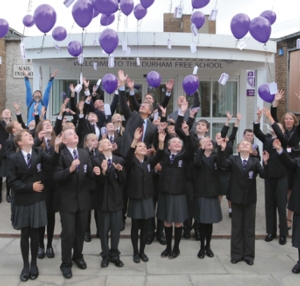When I first arrived in Islamabad International Airport I was met by men who wouldn't look me in the eye or shake my hand. To experience what I perceived to be discrimination was disturbing, but not nearly as disconcerting as finding out why. "Please don't think me rude," explained man after man, "It's just our tradition, you must not think we don't respect you." Fortunately I relish having my preconceptions shattered, and there was plenty of that in my recent visit to Pakistan.
The purpose of my trip was to document the work of The Afghan Educational trust, a five-month-old UK charity, whose initial aims are to support the education of Afghan girls in the refugee camps of Pakistan.
Fiercely opposed to organised religion, Chief Executive Dr Mo Afzal said he was moved to help because: "No door has ever been closed to me, and that, in modern society, it should happen because you are a woman, is repugnant to me." The trust is non-religious and non-political, but its work is certainly the spider in the middle of a religious-political web.
Although it houses some 2.5million Afghan refugees, Pakistan is poor and doesn't have the resources to provide the education the Afghans desperately want. Not that the country has been a world leader in education for females anyway.
Musharraf has admitted problems and vowed to eradicate inequality in primary education by 2010. It remains to be seen whether he will divert some of the 89% of Pakistan's GNP currently spent on the army to the 2.5% allocated to social issues. Meanwhile University academics urged me to take the message to the West: "Our women are not repressed."
No man's land
Musharraf is dancing on dangerous ground. While he has embarked with the US on what Colin Powell has described as an "Era of robust collaboration", 10,000 religious madrassah (schools) are reportedly teaching that Osama bin Laden is a hero. So where does this leave the Afghans who have lived in 'temporary' camps on the country's border for more than 20 years? Somewhat of a no man's land.
On the one hand, Pakistan's government refuses to acknowledge their presence lest they have to supply the camps with safe buildings. Yet, Musharraf recently visited Hamid Karzai who praised Pakistan saying it had been with Afghanistan through difficult times.
Anyone who thinks militaristic Islam can be defeated with armed action is naïve, Pakistan is harbouring thousands of Taliban. On the ground, Pakistanis hold out the hand of hospitality to the Afghans. When I ask them why, they reply with incredulity: "They are our Muslim brothers."
Room for progress
In a satellite refugee camp of Quetta, I met with Afghan refugee Jamila Abassy, the headmistress of the co-educational Maryam Primary School. A true pioneer, Jamila, clearly focused and uncompromising taught me that within organised religion, there was some room at least for progress.
"It is the duty of every Muslim woman to cover herself," she said. "But as far as education goes, we have equal rights." Speaking through an interpreter it was difficult to ascertain if Jamila felt wearing her veil was infringing her human rights. She certainly didn't demonstrate that when faced with opposition to her co-educational classrooms."I remained focused on the aim of teaching," she said.
Given the climate of opinion, Jamila would be foolish to describe the Taliban with anything other than mere disdain. When I ask her how much of a contradiction to the teaching of Islam were their policies of closing schools she says she cannot term them Talib, as the word means 'seeker of knowledge'. "My students are more Talib than they are," she says.
In her schools, Jamila teaches world history, world geography, languages and maths. I asked her if the children learn about other religions. She replied no, except to concede that for Muslims, Jesus was one of many important prophets.
The Afghan Educational Trust is a response to the fierce hunger all Afghans show for education. Every Afghan I spoke with wants three things. Peace for Afghanistan, to return to Afghanistan and education which will encourage the former.
When I asked Jamila for her response to September 11, she replied that while she was distressed for the death of innocents, it had brought change to Afghanistan, and for that one positive outcome, she was grateful.
Jamila's focus, articulation and refusal to adhere to tradition overwhelmed my preconceived ideas about both Muslim women and refugees in general.
And that's when it occurred to me, that, while they are certainly bereft of material comfort, the refugee camps of Pakistan are also a fertile soil for something new.

